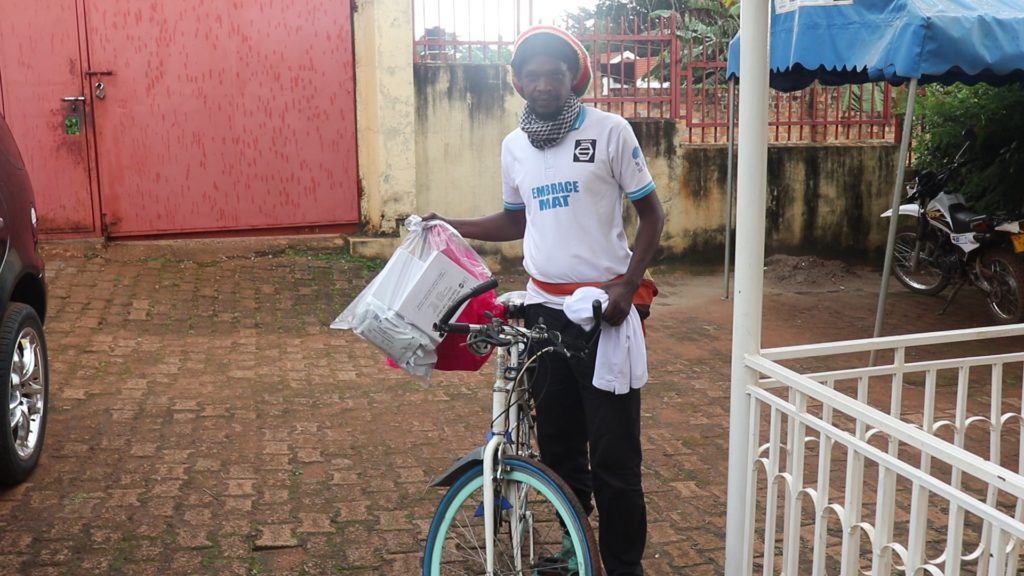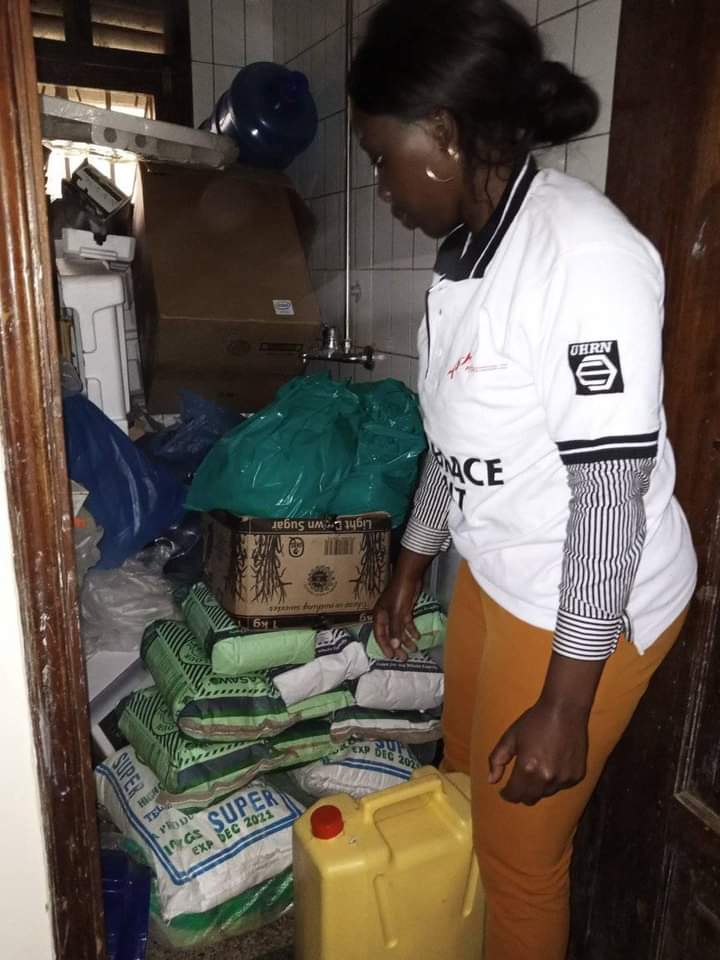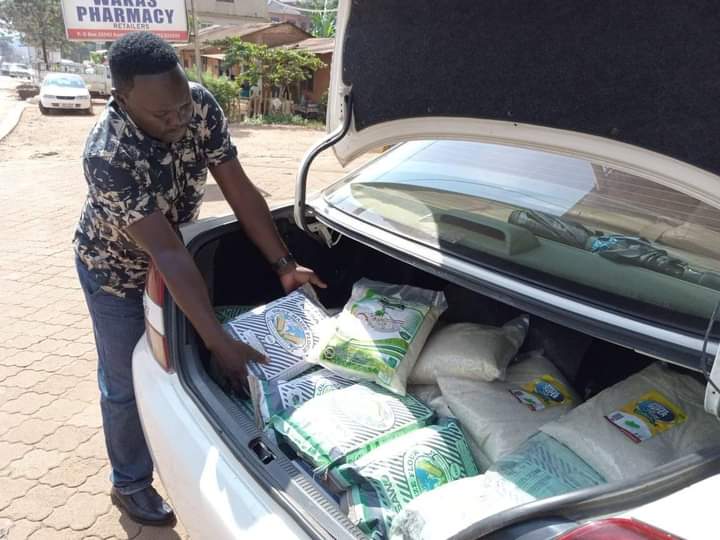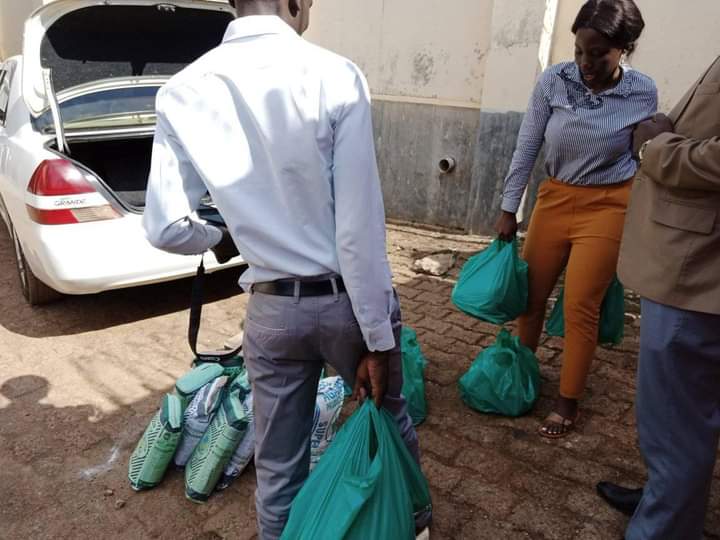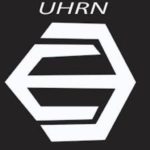
In March 2020, the Government of Uganda banned both public and private transport and restricted individual movements, nonfood markets, and announced nighttime curfew as a response to the COVID-19 crisis. Further, the police, the army, and an
armed community-policing paramilitary group called the Local Defense Unit (LDU), were deployed to conduct patrols to help enforce the directive. This put marginalized groups especially People Who Use Drugs (PWUDs) at increased risk since they are a stigmatized and marginalized population.
The measures that were announced have continued to disproportionately affect PWUDs and security forces have used excessive force including beating, shooting,
and arbitrarily detaining people across the country as enforcement measures in response to COVID-19.
Enforcing such measures has led to various public health challenges such as violation of human rights while other people have ended up losing their lives. Risks have also been increased by the high level of physical and psychological comorbidity found among some people who use drugs and the stigmatization that people who use drugs often experience.
The health system must not only measure COVID-19 but also other health factors such as HIV and other essential harm reduction interventions while ensuring that the basic human rights of people are at the center of the government’s response to this pandemic.
The challenges faced by PWUDs during the Covid-19 crisis
1. Access to treatment:
PWUDs face stigmatization within their communities since they are perceived as criminals. Our concern is that if PWUDs become infected with COVID-19, given so many myths and misinformation, they will face even further stigmatization, making their lives harder. Currently, PWUDs are struggling to afford face masks and disinfectant which are expensive. Access to treatment and care, especially those living with HIV, has been hard due to restrictions in movement. Such measures have led to increased mental health cases among PWUDs. Its on that note that UHRN constituted a mobile response team to sustain ART and condom refills for clients who couldn’t access the health facilities and the DIC.
One of the PWID peers in the mobile response team after picking ART and condom refills for PWUD from the DIC
2. Access to food relief:
Food accessibility and availability has emerged as a serious concern among PWUDs since the vast majority in urban cities depend on seasonal jobs in small industries which have been closed. Food relief by government were delivered at the household doorsteps yet many of the PWUDs in Kampala do not even have houses. They sleep in shacks, verandahs, taxis, sewerage tunnels, and other abandoned structures, making it hard for the national task force to reach them. In addition, providing food required national identification, which most PWUDs do not have. UHRN has mobilized food relief from Global Fund, through the Uganda Key Population Consortium to benefit 450 PWUDs.
3. Impact on Women Who Use Drugs (WWUDs):
WWUDs have faced the greatest challenges such as gender-based violence (GBV), unintended pregnancies, stigma and discrimination, poor access to HIV drug refills & family planning services, sexually transmitted infections, sexual and physical assault, mental disorders and drug withdrawal symptoms. Government measures like quarantine have put WWUDs at heightened risk of violence in the home and cutting them off essential protection services and social networks. There are also reported cases of WWUDs who missed their antenatal services at hospitals due to lack of public transport.
4. Gender-based violence (GBV):
GBV among PWUDs has been high during COVID-19 and has drastically affected WWUDs. Toxic social norms and gender inequalities, economic and social stress caused by COVID-19 and restricted movement and social isolation measures, have led to high cases of GBV. Many WWUDs have been at home with their abusers while being cut off from normal support services.
5. Human rights violations for PWUDs
The most significant human rights issues reported among PWUDs include; failure of clients on ART to have their ART refill, arrest and detention, eviction of Uganda Harm Reduction Network (UHRN) member organizations because of accommodating PWUDs, death of PWUDs due to torture by law enforcement and gender-based violence. PWUDs have been evicted out of their houses in the ghettos by police at night to enforce the COVID-19 preventive measure of social distancing. This has made them more susceptible to assault and to sexual and gender-based violence
Our Recommendations
- We recommend;
- Continuous provision of drug treatment services, including opioid substitution medications;
- Crisis mitigation alternatives to reach PWUDs in the community;
- National COVID-19 Task Force to work with UHRN to reach PWUDs with food supplies;
- Police to adopt Law Enforcement Assisted Diversion (LEAD) programs to allow PWUDs access treatment and social services;
- Release of PWUDs arrested during COVID-19 to reduce chances of transmission; government to prioritize harm reduction interventions;
- Task Force and law enforcement to use harm reduction approach in food distribution and;
- Continuous sensitization of PWUDs on COVID-19 prevention strategies.
“Every support provided to PWUDs in the current COVID-19 crisis is worth saving. #SupportDon’tPunish” –
Wamala Twaibu Executive Director UHRN-



